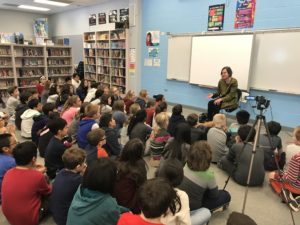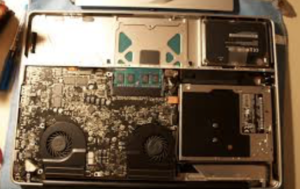Mondays with Mike: Who ya gonna call? Checkbook!
February 19, 2018 • Comments • Posted in Mike Knezovich, Mondays with MikeIn the wake of everything that happened last week, I have nothing to say that isn’t being said. And I’m kind of exhausted thinking about it, so I’m going to stick to some banal subjects instead.
Like plumbers. Roofers. Car repair shops. Dry cleaners. Kennels. Veterinarians. Appliance repair shops and virtually any other service firms you might need. And, how to find good ones.
Check out the video.
Here’s a tip: Check out Consumers’ Checkbook magazine at Checkbook.org. Full disclosure: this is a shameless plug for Checkbook—I used to work there full time and I still freelance for them. But it’s also an honest, I-really-believe-in-this-thing plug.
Checkbook is kind of like Angie’s List or Yelp!, but with more integrity. Checkbook rates local services firms much like Consumer Reports evaluates products. Checkbook operates in seven major metropolitan areas, including Chicago. When you subscribe, you get access to ratings and recommendations for dozens and dozens of service types in your area—you can search by zip code.
A few things set Checkbook apart from other referral internet ratings services. To start, Checkbook limits its consumer surveys to it’s own subscribers and Consumer Reports subscribers. (Consumer Reports has been a supporter and partner since Checkbook was founded.) This means there’s no ballot stuffing on behalf of—or negative campaigns against—the firms that are rated.
And just like Consumer Reports, Checkbook takes no advertising, so none of the firms it rates has any sway over what Checkbook does. Checkbook does regular surveys and compiles the research according to standard survey research protocols, and includes information about the statistical limitations of validity.
But beyond consumer ratings, Checkbook’s staff does fairly exhaustive independent research on the firms. I know, because I used to do it. When I lived in the D.C. area, I’d spend days at a time at local offices of consumer affairs, parsing physical files of complaints that had been brought by consumers. We then reviewed the nature of each complaint—for example, a company like Sears would have a large file—but we had to delineate auto repair complaints from appliance complaints, for example. Finally, we’d calculate a complaint rate based on the size of the business, which we gathered through other research.
Checkbook also does thorough price comparisons. I did a whole lot of “secret shopping,” calling shops for prices for carefully specified repairs or other services. And I drew my share of suspicion as, clipboard in hand, I collected prices at local grocery stores, hardware stores, and other retailers.
Checkbook still does all that and more. For example, Checkbook routinely rates hospitals, emergency rooms and physicians in cities where it operates. I can tell you, I trust their methods way more than do U.S. News or Chicago Magazine ratings.
Like I said, I’m biased. The founder, Robert Krughoff, was a mentor, he was unrelenting in pressing for thoroughness and accuracy, and he was a fierce editor. I was a green Midwestern kid fresh out of college when I first worked there in 1978. It was a terrific learning experience, and it was, as the slogan goes, the toughest job I ever loved.
Robert founded the organization after he was left pulling his hair out after multiple visits to a local car garage that failed to make his car right again. You can get the whole story in this little video.
Robert is less involved but he’s still at it, and where there was just one magazine in the D.C. area back in the day, the empire has spread across the country.
Which means, here in Chicago I’m still a loyal Checkbook user—and I hope you’ll check out Checkbook.




 At fourteen years old, I had never seen anyone so handsome outside the pages of
At fourteen years old, I had never seen anyone so handsome outside the pages of